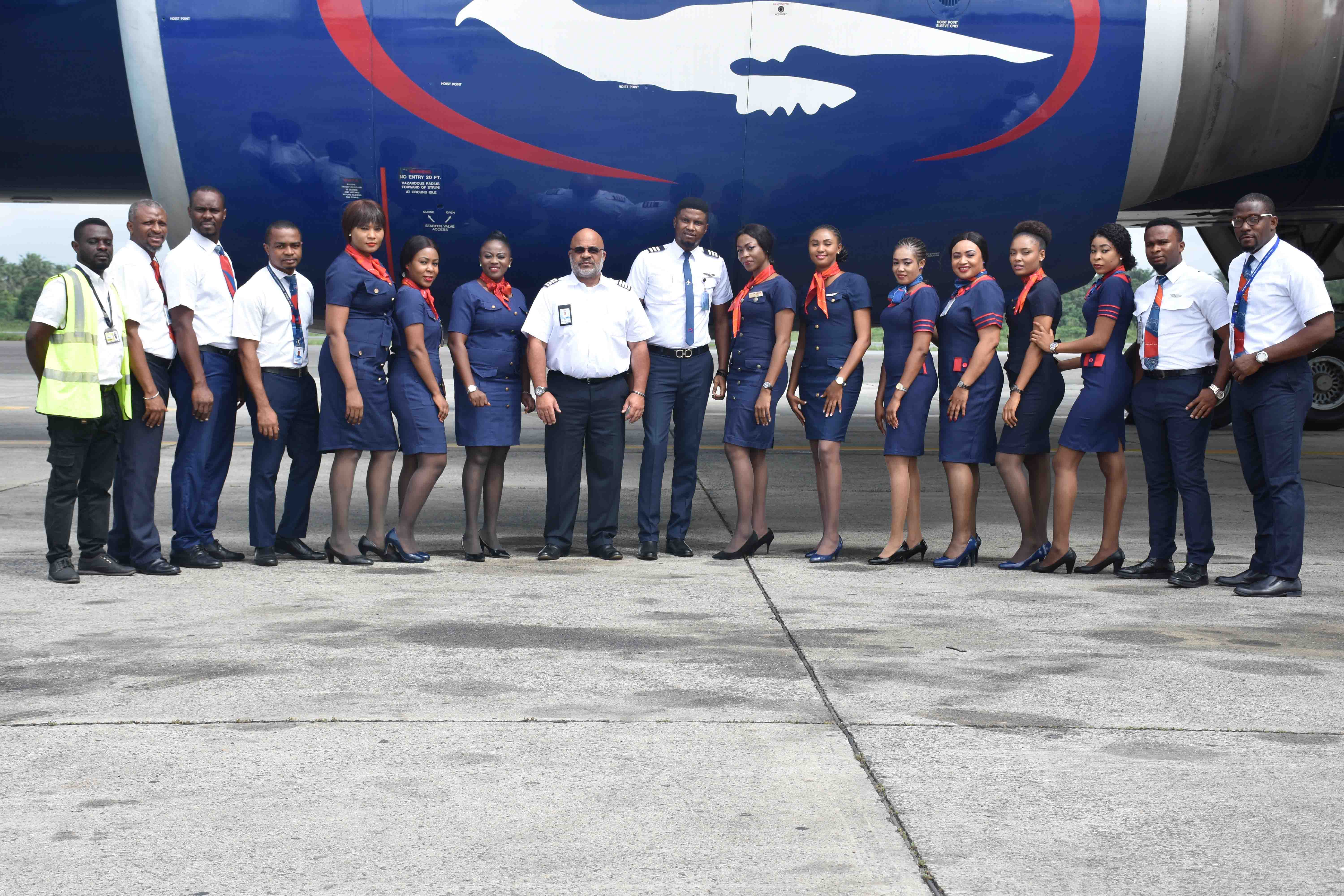
There are indications that globally commercial and scheduled flight operations would resume in June, which is also the same month domestic carriers, would resume scheduled service, as stipulated by the federal government. How can Nigeria revamp air travel post COVID-19?
One feels the air of solemnness and apprehension about what would happen to Nigerian airlines post-COVID-19. The fear lurking everywhere is that many of them might go under or unable to sustain their operations and pay their workers due to paucity of funds.
By June, the airlines would have suspended operations for two months during which period they earned zero or insignificant revenue. That is why the clamour for support by the federal government is gaining some traction. In fact, industry experts like Chris Aligbe, the Director of Engineering, Ibom Air, Lukeman Animaseun and other industry stakeholders have reiterated that without bail out the airlines may not survive.
Taking a cue from what us happening globally, it has become inevitable that every country must give fiscal support to its airlines and also the aviation industry. This is because the sector is the hardest hit under the coronavirus lockdown.
International carriers have announced the lay off of thousands of their workers, including British Airways, Virgin Atlantic Airways, Emirates, Qatar and many others. And many nations have announced palliatives for their airlines, which include direct monetary support, zero interest loans and grants.
Gloom to Hope
Although many industry analysts believe that airlines would face difficult times on resumption but there are also indications that there would be spur economic growth after the Coronavirus pandemic, most likely after vaccine has been approved and made available to everyone. Some analysts insist that the airlines and the aviation sector would gain double what they have lost during the lockdown.
So the airlines hope to get through the teething challenge of resumption with government support and then stabilize and continue to operate like in the past.
The CEO of Aero Contractors, Captain Ado Sanusi, told THISDAY that without government bailout the collapse of the airlines would be imminent and that almost all of them would go down before end of three months, noting that before COVID-19, some of the airlines were already weak.
“Weak aviation industry will adversely affect the recovery of the nation’s economy, if not cripple it. Any country that does not have strong aviation industry will record minimal growth, so coming out of the economic quagmire will become very, very difficult,” Sanusi.
He said that it would be late if the federal government waits until the end of the lockdown before arranging the modalities and plans for the bailout, adding that government should urgently identify the companies that need the bailout and kick-start the process immediately.
“There should be two stages of the bailout. First phase should be soft loans, which airlines should use to pay for maintenance of their aircraft. Government should support the airlines with foreign exchange to lease aircraft. The second phase should be providing grant to airlines. The companies that can pay to ensure that their workers remain in service without reliving them of their jobs should be given grants. Then there should be other forms of relief like taxes, charges and others.
“Government should look at regulatory issues that are not safety critical. It will be difficult for pilots to travel out of the country, so the Nigerian Civil Aviation Authority (NCAA), has to make adjustments to accommodate these pilots without lowering standards. Also the Nigerian Airspace Management Agency (NAMA) should give airlines moratorium for three months. We have to also note that aviation agencies need bailout,” the Aero CEO said.
Sanusi warned that if government decided to do nothing for the airlines, there would be a free fall because the airlines might end up “closing shop. Aviation is very vital in the economy of any nation.”
However, the Aero CEO said that when flight operations resume, airlines would look inwards and review the operations, noting that many airlines would want to conduct maintenance on their aircraft locally instead of taking them overseas. This would cost the airlines less and also save the country foreign exchange.
He said airlines would also conduct more training locally and urged government to make the simulator recently acquired by the federal government ready so that instead of travelling overseas, pilots type-rated on simulator ‘s aircraft type would retrain locally.
Regaining Lost Ground
The Chief Operating Officer of Dana Air, Obi Mbanuzuo believe that airlines would bounce back financially months after resumption, because the economy which is down due to lockdown would be galvanized; so there would be a flurry of activities both in the public and private sector. He said that those who believe that passengers would be sceptical about travelling by air do not realise that with the new flight protocol, passengers would feel protected and won’t have any fear about travelling by air.
CEO of Belujane Konsult, Chris Aligbe said that the number of persons that travel by air locally is about 12 million annually and those on international travel are about five million people, making air passenger traffic 17 million annually. He said that with bail out from the federal government, the airlines would survive to ramp up the existing passenger traffic, pre-COVID-19.
“If the airlines collapse people will no longer move because we do not have reliable rail system and road system is fraught with security fears and this will stifle the economy because people whose work is critical to the growth of the economy will no longer move. This will be a setback to the economy. So besides the contribution of the aviation sector to the economy, economic activities will ground to a halt without air travel,” Aligbe said.
He noted that over 22,000 people are directly employed in the aviation sector as airline workers, agencies staff, handling companies’ personnel, catering services and others with over 100,000 indirect jobs.
These, he said, would be adversely affected if government fails to bailout airlines, noted that the airlines would bounce back with the support that would be given to them by the government.
Aviation industry consultant and Principal Partner, Etimfri Group, Amos Akpan said that banks should also help the airlines to kick-start their operations after the lockdown.
“The real issue is for the commercial banks to grant working capital overdraft facilities to the airlines based on the size of each airline’s operations. This is where the federal government needs to assist the industry by instructing the removal of collateral on such overdraft requests, except that sales must be domiciled in the bank granting the overdraft. Also, the interest rate must be at maximum of 5 per cent in the first twelve months at resumption of operations,” he said.
Surviving Post-COVID-19
Akpan gave a recipe on how the airlines would survive and said that they must have to review their cost and streamline their operations.
“The industry will have to hit the ground running with solutions timely enough to avoid delay and catch up with global recovery trends. This is our time to document our postulations and templates applicable to various scenarios.
“My position on bail is that government should not create funds and invite aviation operators to apply and be granted money. Instead, the airlines should be given grant incentives through existing institutions that aviation companies transact business with. Do not give airlines money. How? Nigerian Customs should set up a program on the instruction of CBN and Minister of Finance. They should publish a list of equipment and parts that will not be paying duty for airlines, handling companies, and service providers like the Nigerian Airspace Management Agency (NAMA), the Federal Airports Authority of Nigeria (FAAN) and others,” he said.
Akpan suggested the period covered for duty free for the items on such list should be a minimum of two years, adding that the companies would liaise with the Minister of Aviation to send in the list of items.

Post Quarantine Boom
Tourism Consultant and Vice President (South East), Federation of Tourism Association of Nigeria, Ngozi Ngoka projected that there is going to be a post lockdown boom of the travel industry and when airlines are able to overcome the initial challenges, they would be ushered into a boom that would record high passenger traffic.
“Yes, it does make sense to postulate that it will take a while before airlines start to operate at full capacity. Travel will increase depending on people’s perception of safety. But you know that in times of crisis, people feel safe in environments they are familiar with-a place that gives them comfort. So those that get the urge to travel may choose to explore their immediate vicinity before attempting to further climes. Some local tourism products may experience a boom once the restrictions are lifted because people are tired of staying home. Restaurants, event centers, hotels, nightclubs, should use this period to prepare their facilities for post quarantine boom.
“But looking forward, I think people may be persuaded to travel to destinations they perceive as comfortable and safe. Therefore, I think a lot of people would prefer to travel domestically when they begin to get the travel bug again. I hope that state governments that have included tourism in the economic planning consider this in their post COVID 19 recovery plans and make concerted efforts to boost the State tourism industry,” Ngoka said.
She suggested that the Nigerian government, through its Ministry of Information should also champion a campaign to encourage Nigerian citizens to travel within Nigeria.
“Of course, the security situation would have to be tackled and our elected representatives and leaders would have to live by example. I encourage travel agents and tour operators to start looking at forging relationships with other businesses in the tourism chain to produce inclusive made in Nigeria tourism packages for the Nigerian market. This is a good time to develop strategies to tap into the various opportunities for home grown tourism. Nigerians are very well informed and sophisticated tourists. If we can attract Nigerians, we can attract the rest of the world,” she said.
Beyond the apprehension that is currently permeating through the aviation industry, it is believed that once the airlines resume operation, passengers would be willing to travel and local travel may begin to blossom over time.





